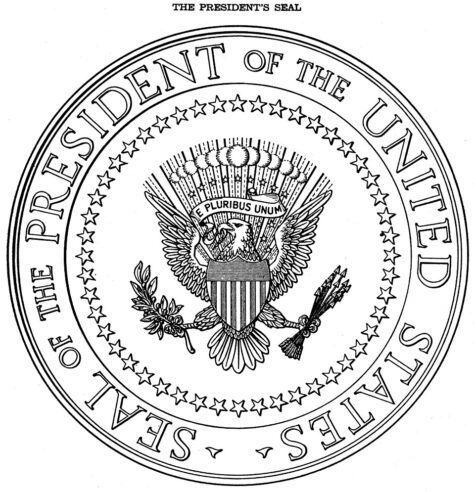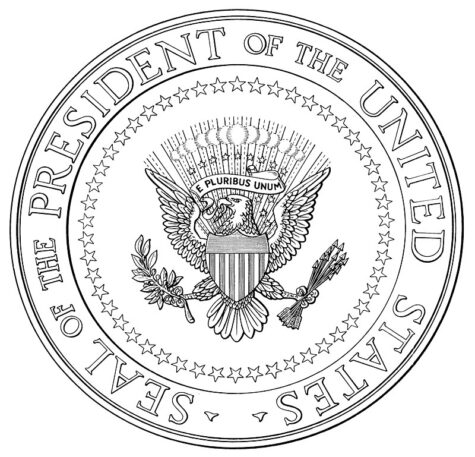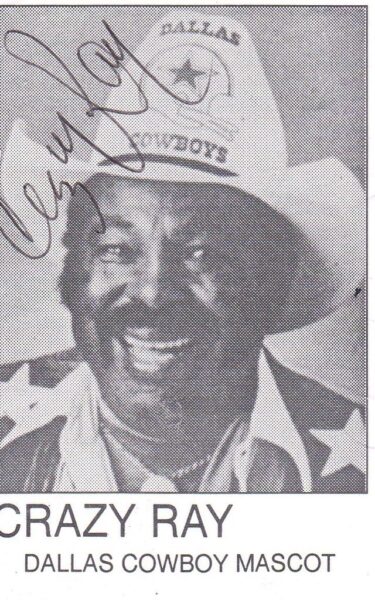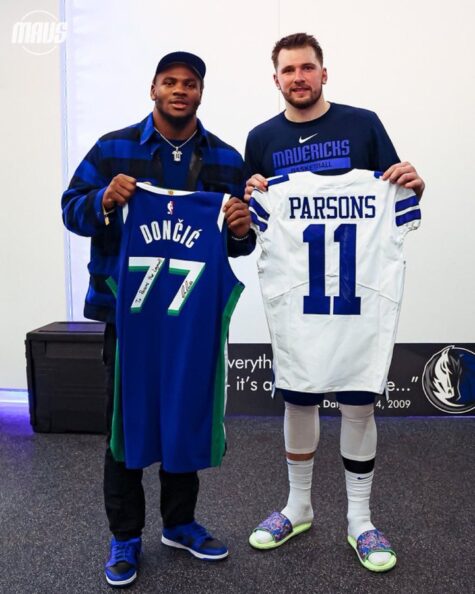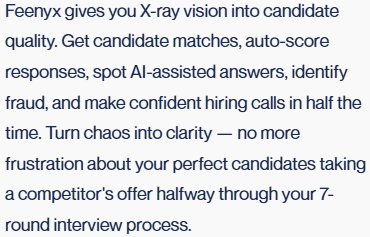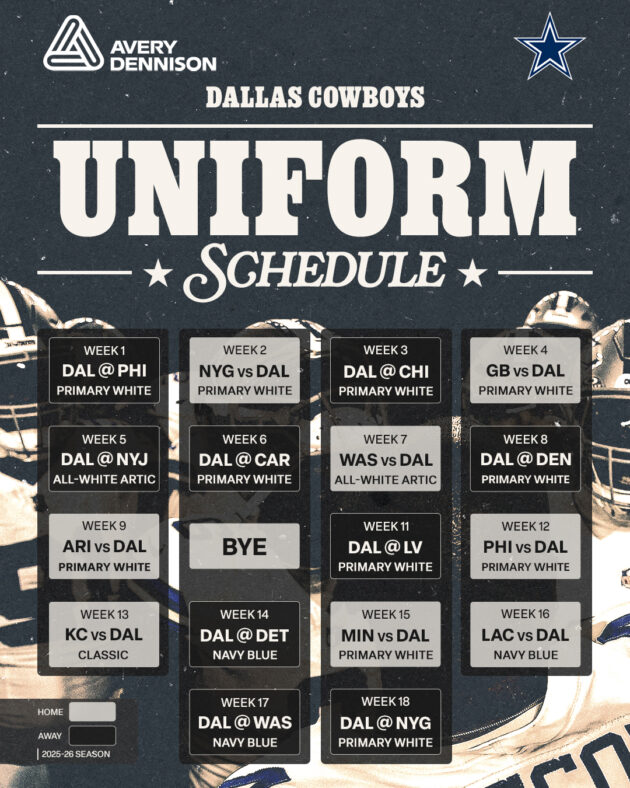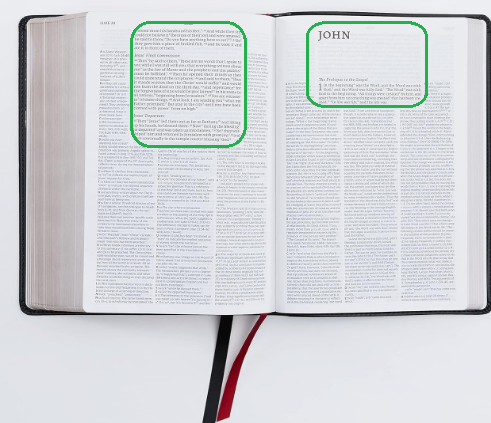There is so much wrong with this world. But at least football season is back in full swing. That game last night between Baltimore and Buffalo was a great way to end the first official Sunday of football.
If you spent any of your teen years in the Eighties or Nineties, seeing the MTV Video Music Awards air on CBS was a weird feeling. I mean, I didn’t watch it; football was on, but the idea for an antique like me is a little bewildering.
UNLV has a slot machine on the sidelines. My, how times have changed.
ICONIC: The University of Nevada turnover slot machine was the hardest celly ever.
— MLFootball (@_MLFootball) September 6, 2025
Speaking of bewildering, War.gov is a thing. That’s right, with the renaming of the Department of Defense, Defense.gov now redirects you to the ominous War.gov. As a lover of American and presidential history, I thought you’d enjoy a little history lesson.
The War Department was founded in 1789 and was led by a civilian leader, Henry Knox. After independence, he became the last Secretary at War under the Articles of Confederation (1785–1789). When the Constitution kicked in and Washington took office in 1789, Knox was reappointed as the first Secretary of War under the new government. It’s worth noting that in 1798, Congress created a separate Department of the Navy, establishing the Secretary of the Navy. Why did the young nation make the Navy separate and independent? The War Department handled the Army and naval affairs. But the Army and Navy were vastly different. You have land forces vs seaborne forces, funding needs, and even officer corps culture and ranking systems. Congress at that time didn’t think one secretary could manage both. The catalyst was the Quasi-War with France in 1798. The U.S. suddenly needed a fleet to fight privateers, and Congress wanted a Cabinet secretary who was 100% focused on ships. And to a lesser extent, having an established Navy had a sense of prestige over the Army. Sail-powered ships projecting power abroad felt different than frontier forts. Congress loved the Navy’s independence. So, in 1798, they carved out a Department of the Navy. That’s how we ended up with two coequal Cabinet secretaries — one for land, one for sea.
Up until 1947, the Secretary of War (Army, Army Air Corps) and the Secretary of the Navy were on equal footing in the Cabinet. Both directly reported to the president. That fragmentation led to turf wars, budget disputes, and competition for influence, which wasn’t ideal for coordinating the war effort. Some argue it’s one of the things that led to Pearl Harbor, as it exposed the dangers of siloed commands.
Some of you may be surprised to learn that the Secretary of War/Defense is a civilian. Why is that? The U.S. has always been hypersensitive to military power. Civilian bosses over the services were meant to ensure the armed forces never operated as an independent political machine. It ensures democratic oversight, avoids military autonomy in policy, and prevents the armed services from becoming their own political blocs. That’s the U.S. design. Generals fight wars, civilians direct wars. Contrast that with, say, Germany in WWII, where generals were often running policy themselves.
And yes, that also means POTUS is also a civilian. The framers wanted civilian supremacy over the military, with no Caesars, juntas, or oligarchy. Article II makes the President commander-in-chief, but he’s elected and accountable to the people, not a uniformed officer. In fact, if a sitting general wanted to be President, he’d have to resign his commission first. That’s why Eisenhower gave up his five-star general status before taking office.
So, the Constitution designates the POTUS to give broad strategic direction (go to war, peace treaties, nuclear posture). The generals and admirals run the operational details. The Secretary of War/Defense, another civilian, acts as the in-between boss to make sure the brass stays in line with civilian leadership.
What led up to the name change in 1949, and how did the Army and Navy end up with equal footing in the Cabinet? As a senator in 1944, Truman was already calling for unification. He became Vice-President in January of 1945 and President in April 1945. As president, he pushed for and signed the National Security Act of 1947. The Department of War was renamed the Department of the Army. The Army, Navy, and newly independent Air Force are all folded into the National Military Establishment (NME). The NME didn’t last for long, as he then pushed the 1949 amendments that officially renamed it the Department of Defense and cemented the modern Pentagon system. That act created the first Secretary of Defense and placed him above the separate civilian service secretaries. And, the Chairman of the Joint Chiefs of Staff is also established to advise the President and SecDef, but not command forces. Additional reforms, such as the Goldwater-Nichols Act of 1986, further centralized authority and emphasized joint operations across the services.
And here’s where the Truman reorg mattered. JFK was able to gather advice from a unified Joint Chiefs of Staff, filter it through Secretary of Defense McNamara, and weigh civilian versus military options. Without that streamlined Pentagon chain, the Chiefs might have freelanced harder. Instead, Kennedy had a clear picture of what “the military” wanted (air strikes/invasion) and could consciously reject it. Truman’s reorg made it so that the Pentagon would speak with one voice. That didn’t stop bad ideas, but it stopped generals and warmongers from running around Congress lobbying (like MacArthur tried).
Why was the word “Defense” deliberately chosen over “War?” In a world where nuclear weapons loomed and Cold War tensions ruled, Truman and his advisers wanted a posture of deterrence, not aggression. “War” is a far more measured term, reflecting Cold War sensibilities and deterrence over aggression. It wasn’t just PR, but also bureaucratic reform. It was about projecting unity and deterrence to the Soviets. One voice, one chain of command, with Truman saying, “We’re organized for peace through strength.”
So, what exactly did Trump do last week? Trump signed an executive order renaming the Department of Defense to the Department of War, officially becoming a secondary title, with the Pentagon’s website switching from defense.gov to war.gov. He also styled Pete Hegseth as the “Secretary of War.” It’s symbolic. Trump framed it as a return to raw strength, rejecting the “woke” vibe of “defense.” Critics, like myself, see it as militaristic posturing, while supporters call it a nod to historic American power. However, it didn’t undo the legal cement of the 1949 act. For a full reversal, actually eliminating the Department of Defense and restoring separate Cabinet-level War and Navy departments would require Congress to pass legislation. Trump basically slapped a new label on the building. The underlying wiring, the Pentagon structure, and the SecDef/War over the services haven’t been broken up.
I’m curious what else Trump might do. When it comes to the Pentagon seal, branding on DoD press releases, and ceremonial flag designs can be tweaked by executive order. This also makes me wonder if Trump is tempted to change the Presidential Seal. In 1945, Truman issued Executive Order 9646, altering the Presidential Seal so the eagle faced toward the olive branch of peace instead of the arrows of war. That change signaled a nation “on the march” yet seeking peace, not wanting to flex warlike claws. FDR kicked off the concept before his death, but it was Harry Truman who formally enacted it. There’s an urban myth that at times of war, the head of the eagle switches sides, but that’s pure B.S.
This is the 1948 Presidential Seal with 48 stars. The second is the updated 1960 Presidential Seal with 50 stars. I guess it will change when/if Greenland and Canada are admitted as states.
I’m okay with any Cabinet member complimenting the First Lady, but to say “She of course is wiser than all of us” is just too much butt-kissing.
Energy Secretary Chris Wright: “I’m working every day on using AI to figure out how to cure cancer or launch fusion energy or understand dark matter. Our Defense Department is trying to figure out how to keep America safe. God bless the First Lady. She of course is wiser than all of us.”
— Aaron Rupar (@atrupar.com) September 4, 2025 at 7:24 AM
There is an Orthodox Church in NJ who has the most scandalous instagram account and I’m crying. pic.twitter.com/C3D42pcW4H
— Sarah St. Onge ن ♀ (@She_Brings_Joy) September 7, 2025
Syracuse football running sprints on the field after a mistake-filled 27-20 overtime win over UConn.
The Orange were down 17-6 midway through the 4th and also allowed a game-tying FG in the final seconds.
Never seen this before. This went on for a solid minute or two. pic.twitter.com/hI1ganjfR7
— Connor Pignatello (@c_pignatello) September 6, 2025
I now want to root for Vanderbilt.
From the custodian crew at Lane Stadium, thank you Vanderbilt for leaving the locker room clean.#hokies pic.twitter.com/Rq0jbEwIMR
— VT Grounds Crew (@VT_groundscrew) September 7, 2025

